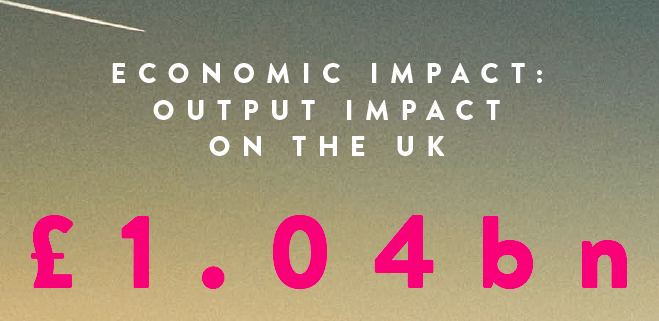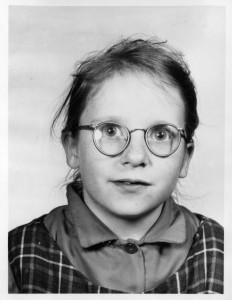
Thoughts on Sue Slack’s book, ‘Cambridge Women and the Struggle for the Vote’, interspersed with brief reflections on academic jargon, school history lessons, and imposter syndrome.
Slack’s highly illustrated and informative introduction to the Cambridge suffragist movement, presented in the style of an in-depth gazetteer, plugs an important gap in the narrative on the British votes for women campaign. Chapter One, entitled, ‘Better is Wisdom than Weapons of War’, provides a useful overture, confirming the pivotal role of Cambridge in the campaign, and introducing some of the significant players, societies and events.
The book covers the topics of rural societies in Cambridgeshire towns such as Ely and March; the role of key Cambridge colleges (specifically Girton, Newnham, Hughes Hall and Homerton); suffragettes and militancy in Cambridge; the story of the Women’s Freedom League; ‘Suffering Gents’ who supported women’s suffrage; ‘Fighting Harridans’, women who opposed women’s suffrage; the impact of the First World War on the campaign; what happened after some women were given the vote in 1918, bringing the chronicle up to date by noting the issues of equal pay and opportunity in the context of The Fawcett Society’s continuing campaign for equal rights; and celebrating Cambridge women, including the unveiling of the statue of Millicent Fawcett in Parliament Square on 24thApril 2018, one hundred years on from the Representation of the People Act.
This is not an ‘academic’ book, and is all the better for it. Slack herself says that she approached the subject from a local and family history perspective. In doing so, she tells the story through a series of portraits, cameos and reflections that are, thankfully, free from academic jargon
In 2019, Professor John R. McNeill, President of the American Historical Association, observed that obscure language is undemocratic; it reaches only a few initiates and excludes the great majority of readers (see his blog post, ‘Jargon in history writing shuts out the public’). He says that history is one of the few disciplines that allows efficient communication among specialists in ordinary language. The same cannot be said for my own discipline, sociology.
On completing my doctorate and a couple of research contracts at the University of East Anglia, I decided to quit academia in 2015 and focus on researching and writing social history, starting with the history of Heffers of Cambridge.

I now describe myself as a ‘social historian and author’, and whilst having worked incredibly hard to earn the title of ‘Dr’, I do sometimes feel a bit of a fraud at gatherings when surrounded by proper historians who, unlike me, have higher degrees in History. At least the responses to my publications and illustrated talks have been favourable, and I particularly enjoy meeting fellow history enthusiasts.
From the beginning, Slack disabuses readers of the common myth that votes for women were won by the suffragettes led by the Pankhurst family, and explains the critical distinction between suffragette and suffragist. I could have done with this book as a teenage scholar in the 1970s. Whilst my secondary school history teacher, the memorable Mr Maxwell-Stuart of Chesterton, Cambridge, went beyond the confines of an unwritten national curriculum dictated by the emulation of grammar school convention, I do not recall any specific lessons on the movement for women’s suffrage. I do recall watching the television series, ‘Shoulder to Shoulder’ (written by a team of men) in 1974, and hero-worshipping Sylvia Pankhurst. Had I been better informed about Millicent Fawcett, I would perhaps have admired her more.
I did admire Mr Maxwell-Stuart, a colourful educator (despite turning up to school every day in a dark suit) with an infectious enthusiasm for his subject. It was many years, however, before I pursued history in any meaningful way, apart from becoming an inveterate reader of biographies in my spare time. As Miss Haywood, the Principal of Long Road Sixth Form College, Cambridge, wrote in 1978, ‘Julie seems to lack the confidence in her own ability that will in fact enable her to make the most of her gifts.’ My ‘A’ Level History grade was poor, and any plans to pursue a career in librarianship and archivism were shelved.

The confidence eventually began to bloom in late 1980, over two-hundred miles from home, at university in Bangor, North Wales, where I gained a respectable upper-second in ‘Social Administration’. Looking back at the study modules, I’m struck by their relevance to the multifarious and (conceivably) successful career I did eventually pursue, in the fields of public sector housing, equality and social policy, homelessness, victim support, higher education and social history. The modules included political sociology, crime, deviance and social control, the welfare state and the citizen, theories of social policy and income maintenance, health and personal social services, legal and political institutions, the development of the welfare state, and nineteenth century origins of social policy.
In her chapter on rural suffrage societies, Slack points out that their members were mainly made up of women with private means including ladies of the manor; members in Cambridge itself were often don’s wives or ladies associated with the University. In the villages, support was also given by shopkeepers, teachers, lawyers and doctors. Virtually no town or country working-class women signed-up.

In her foreword to Slack’s book, Emeritus Professor Mary Joannou notes that the history of the suffrage campaigns is not merely that of the socially privileged women, and refers to the ‘forgotten’ and ‘unknown’ women such as the college bedders, shop assistants, seamstresses and homeworkers. The women featured in Slack’s book were, however, mainly privileged, which may reflect just how difficult it is to research the hidden lives of those who were not. I am reminded of the invisibility of my nanna, Ethel Driver, who gave many years of loyal service as a college bedder in Cambridge, and who, according to college records, never existed. Nanna lived in a small terraced house in Christchurch Street, worked doggedly, and was devoted to her ‘boys’ on her staircase.

Watching the 2015 film, ‘Suffragette’, I was struck by the different trajectories of the mistresses and their servants who fought for the same cause. A review of the film by Dr Laura Schwartz in History Today rightly observes that it fails to address the tension between mistress and maid, ‘between the woman who didn’t wish to waste her life on domestic drudgery, and the woman she paid to ‘drudge’ in her place’. At least Slack and Joannou acknowledge the issue.
The inclusion of contemporary photographs in Slack’s book to illustrate locations, alongside a wide range of images from the archives, enhances the narrative and is especially useful to readers who are familiar with Cambridge today.
Many times in recent years, I have walked past my old primary school, St Luke’s in Victoria Road Cambridge, the location of a Women’s Suffrage Public Meeting during the campaign. Slack reproduces the poster for this meeting in her book.

Slack’s excavation of the abundant Cambridgeshire Collection at the Cambridge Central Library (which is thankfully available to all) has clearly enriched her presentation. It is also good to see the contributions of the Cambridgeshire Archives, the colleges and the University Library.
Many archives are more accessible to the general public than people realise. That is, when we’re not in a pandemic lockdown doing our bit to protect those more susceptible to the ravages of Covid-19, and the wonderful NHS teams who treat them. All facilities at 24th March 2020 are closed, and rightly so.
There are also excellent historians and biographers who write blogs about Cambridge women in history. Do explore for example, Antony Carpen’s ‘Lost Cambridge’ and Dr Ann Kennedy Smith’s ‘Ladies’ Dining Society 1890-1914′.
The lack of an index in Slack’s book is a significant shortcoming and, unless I am missing something, the author biography is irritating, as it refers to the author’s book soon to be published, ‘Better is Wisdom than Weapons of War’.
Note to Amberley Publishing: pay more attention when checking the final proof.
Note to Sue Slack: thank you for a job well done.
Note to self: stay at home and keep writing.

‘Cambridge Women and the Struggle for the Vote’ by Sue Slack (2018)
Amberley Publishing £14.99
Winner of a Cambridgeshire Association for Local History Book Award, 2019





